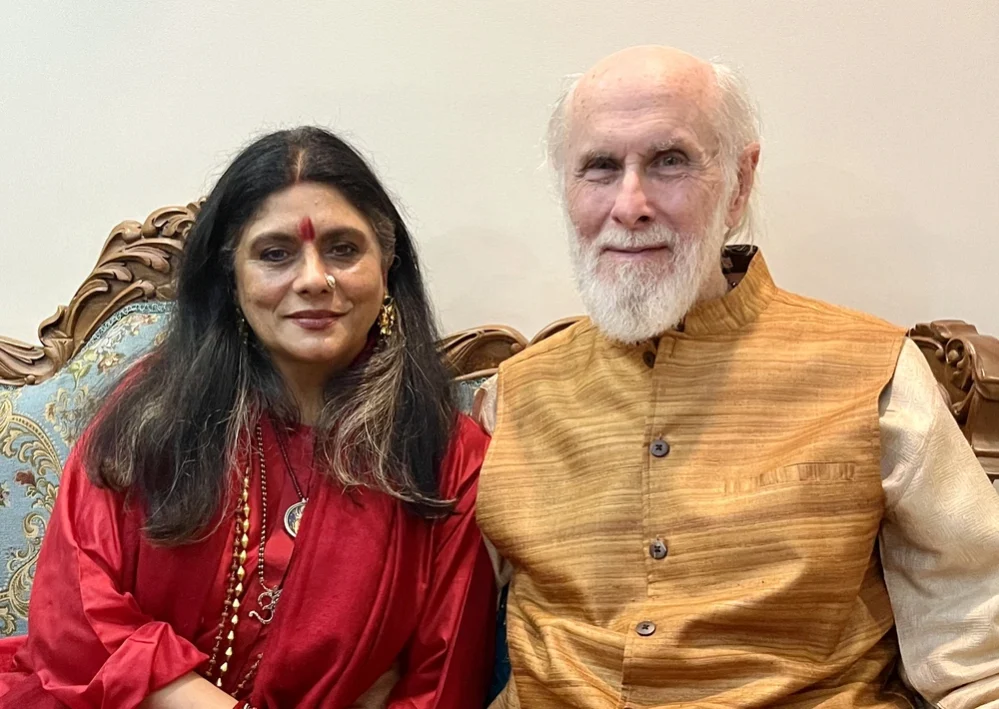Addictive Nature of the Mind
There is a simple way to overcome all addictions, but not easy. It is to learn how to calm and control the mind. All addictions are compulsive patterns of the mind that we fall into when we fail to be fully Self-aware.
The difficulty is that deep seated addictions cannot be overcome merely by occasionally countering them with occasional mental effort. Countering addictions requires a steady daily awareness, ultimately a moment by moment awareness for full mastery of the mind. We must hold our consciousness in a state of witnessing the mind and its patterns, rather than identifying with our thoughts as we normally do.
The prime teaching of Yoga and Vedanta is transcending the conditioned mind (chitta) into unconditioned awareness (Atman or Purusha). This involves learning to observe the mind and its movements, just as we can observe objects and events in the external world. Such observation must be steady and deep.
This witness state is called Sakshi Bhava, which is to return to the state of the Seer, that is our true Self and awareness behind the conditioned patterns of the mind.
Our lack of attention allows us to fall into wishful thinking and addictions, in which our minds are overcome by external stimuli and come to function beyond our mind’s control.
Mind as an Addiction-forming Mechanism
The mind, we could say, is an addiction-forming mechanism. That is why it is easy to fall into one form of addiction or another, unless we learn how to control the mind by an inner intelligence.
The mind is prone to addiction by its very nature and way of functioning. We could say that the mind is our first form of addiction from which all other addictions follow, whether of thought, emotion or sensation, relative to outer activity or inner imagination. The mind is based upon the principle of habituation, which is connected to familiarity and memory, and part of the mind’s conditioning process overall. The result is our mind’s get trapped in compulsive dualistic patterns of attraction and repulsion.
The mind by its connection to the senses naturally looks outward, which puts us under external influences that rule over us, particularly those of pleasure and pain. Stronger external stimuli like alcohol easily draw us into addictions. If we don’t have a strong motivation and inspiration in life beyond the senses, our minds fall into their basic inertia and habits, in which addiction is never far away.
Nature of Addictions
Almost everyone has some sort of addictive or compulsive behavior, whether to food, alcohol, drugs, media, games or other stimulations. These are not always regarded as addictions but as part of our regular lifestyle, interests or pursuits, our life routine, unless they inhibit our functioning or isolate us. Many are socially related.
The mind’s addictive tendencies rest upon the fact that our mental responses must be habitual to deal with the complexity of life, requiring familiarity, repetition and regularity to function. We can see this in learning a language, which we must use habitually in order to become proficient in. It extends to any skill like learning how to use a computer, a musical instrument, or drive a car. The subconscious mind takes over the mechanical aspects so we can keep our conscious minds free to give their attention elsewhere, yet continue mental patterns that may not help us.
The mind does need to be trained according to a pattern or it becomes erratic to reach its optimal functioning. The issue is whether the particular pattern of the mind is guided by a higher consciousness from within, or is simply the product of external influences or internal compulsions, which can create addictions. There are many positive forms of behavior or life regimens that we can regularly engage in, including Yoga and meditation.
Our vocations are largely repetitive in nature and easily become an automatic routine. We can hold to a witness consciousness when performing such actions, but that requires effort and cultivation to develop. Otherwise, our attention can wander into addictive patterns, imagination and daydreams.
Mind Is not Self-aware
The mind is not a truly conscious or a self-aware intelligence, but a conditioned response system based upon memory and habitual activity. While we speak of artificial intelligence (AI) today, most of our intelligence is a conditioned response system that we rarely question or examine, and do not know how to transcend into direct awareness. Much of our behavior is artificial, contrived, reactive, driven by external stimuli, not the product of an inner motivation of our own.
This habitual side of the mind easily gets overwhelmed by strong sensations from the outside, the factors of pleasure, achievement, power and recognition, to which we get attached. Extreme attachment becomes an addiction.
This means that the only way to go beyond addictive and compulsive behavior and conditioned responses, is to go beyond the mind. That may sound strange or impossible to most of us, but is possible as the mind is but an instrument, not as our true inner awareness. Going beyond the mind requires we have a goal in life that transcends the outer world to our inner Being.
Deconditioning the Mind
We can learn to use this very habit forming tendency of the mind to help decondition it. This is the basis of mantra practice to purify and discipline the mind. By repeating a mantra regularly, particularly a seed mantra like OM or HREEM, the mantra enters into the subconscious mind and can counter thoughts of a negative nature, like fear, anger, anxiety or desire. The mind’s focus gets merged into the mantra that removes other memory fixations.
Mind and prana always go together. Our compulsive thoughts are reflected in our breathing patterns. Deepening, calming and internalizing the breath helps counter addictions, including balancing the flow of the breath between the right and left nostrils. If our breath is slow, gentle and full, the mind will also enter into a more attentive state.
Many of our addictions are sensory in nature, like addictions to food or drink. Learning to practice pratyahara, the yogic turning the senses within, helps remove them. This includes taking in calming sensory impressions as in nature scenes, awareness of space, elevating music or chanting, aroma therapy, gazing at a flame, or focusing on a yantra.
Yet most important is cultivating the power of concentration to make the mind aware in the present, not responding according to the patterns of the past. If we have a strong power of attention, we will not easily fall into compulsive thought patterns. Yet for this to occur we must practice concentration and not simply be drive by entertainment or external influences. Use of yantras is very important here
This sustained power of attention can lead us into the meditative state in which the mind becomes like space and its memories become like clouds in the sky that hold no power over us.
You can overcome all addictions if you cultivate such yogic and meditation practices. But the rule is simple. You must give as much attention to deconditioning the mind as to conditioning it, or the mind’s compulsions will continue to rule over you.
Recognize that you are not the mind but the light of Consciousness that pervades the entire universe. Then no addiction can cling to you and you can rest content and full in your own nature, without needing anything from the outside to make you happy. There is an Ananda behind the mind we can access whenever we willing to look beyond outer names and forms to the essence of bliss.
David Frawley (Vamadeva Shastri)






